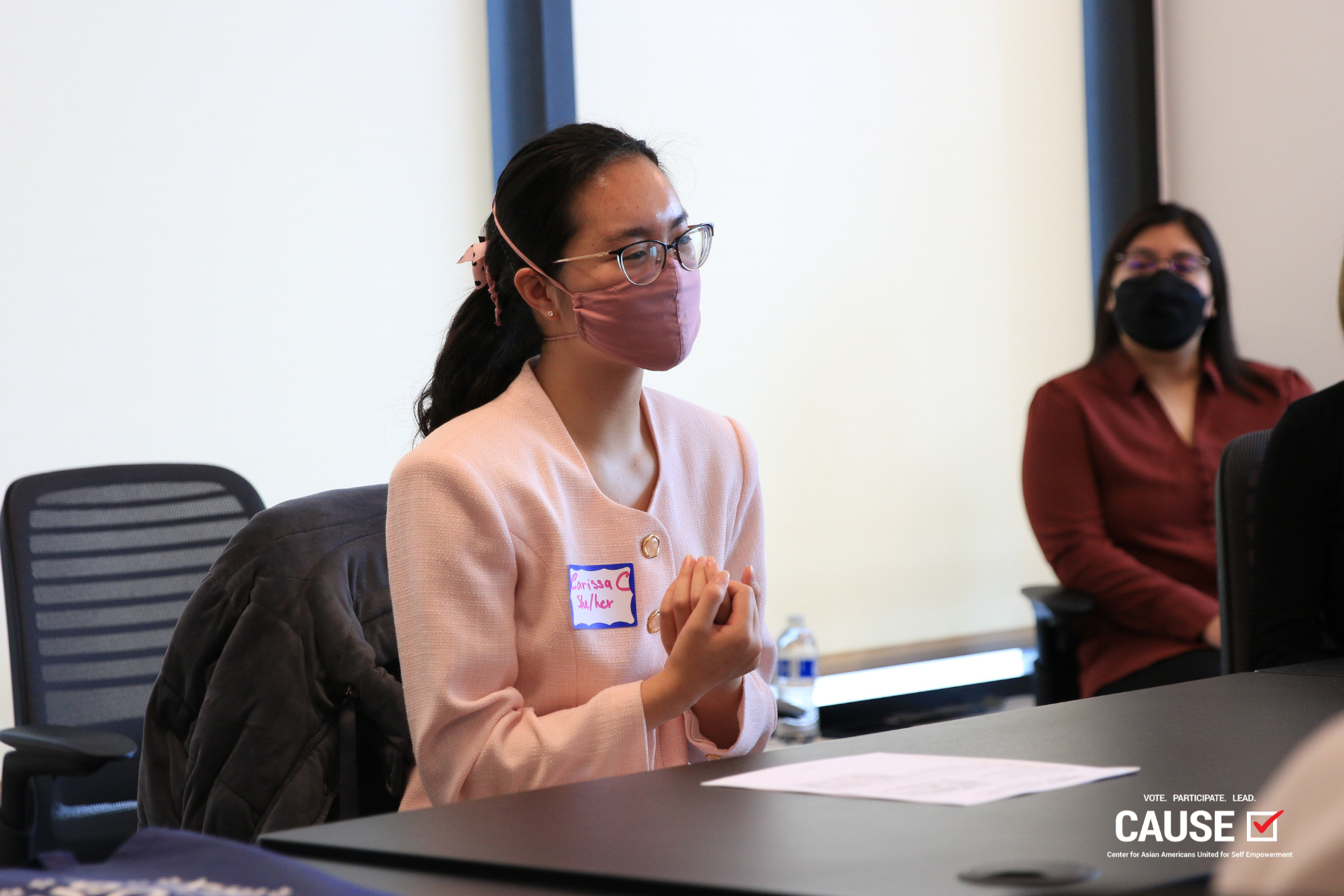For many Asian American youth, the phrase “burn out” is painfully familiar, summoning up images of no sleep, 8 AP classes, countless extracurriculars, and the perpetual threat of disappointing others. But at the end of my senior year of high school, I was burnt out in a different way. I had just spent the past two years doing my best to combat the spike of anti-Asian hate crimes and xenophobia from the confines of my room: organizing virtual conferences, hosting weekly affinity group meetings, and giving schoolwide presentations on the Yellow Peril. I tell people that it was a rewarding and eye-opening experience, but it was also exhausting. Alone in my room, I felt both isolated and hopeless, wondering if my efforts were all for nothing. How could I, a small individual at a small LA private school, make any difference in the face of such global, historically-entrenched issues? I grew cynical and tired, and when I had the chance to start anew as a freshman in college, I took a step back from social activism, choosing to focus instead on academic and personal exploration.
Walking into CLA, I was nervous for a number of reasons: not only had I never taken a poli-sci class before and didn’t know much about electoral politics, but I had also stepped away from community organizing and I wasn’t sure whether I was ready to come back. The moment I met the other interns, I began to sense my cynicism melting away in the face of their excitement about the community issues that mattered most to them, from gentrification to mental health. One intern shared, “Every time I come back from college, I see historic landmarks near my home torn down and replaced by sky-rise apartment buildings”, while another expressed, “I had to hide my therapy sessions from my grandparents. Whenever I was on my way to therapy, I had to make up a lie and tell them I was going somewhere else.” Their fire was contagious and their outrage fueled me. But on the last day of our Orientation Week retreat, I went through a workshop that solidified my conviction: I was indeed ready to come back.
Godfrey Plata walked in with the kind of jubilant energy that immediately lights up a room. His workshop focused on re-framing macro issues like racism, poverty, homelessness, etc, which were the “roots” of the tree, into tangible, concrete policies that we could change. The most powerful moment came when we fleshed out the trunk of our trees, where we wrote down “things you thought could never be changed”, as Godfrey put it. He illustrated the concept with a School-to-Prison Pipeline tree, noting that one basic assumption we have is that “police are allowed on campus”. For our group’s tree, we had picked the issue of lack of resources in public schools, and we discussed how public school is always assumed to be the lowest quality path of education, the default for those who don’t have access to alternatives like charter, magnet, or private schools. We noted that in many East Asian countries, public school is both the default and the highest regarded path to education, showcasing the two aspects don’t have to be mutually exclusive. Another group completely blew my mind when they challenged the notion that “undergraduates have to pay for housing”. I had never before considered a reality in which housing would be free for undergraduates, but it made sense: how could any university assume that their students didn’t need housing? And if it is necessary for the very survival of its students, shouldn’t our higher education system invest in this kind of guaranteed housing? All these “facts” about our society that I simply took for granted as immutable suddenly became malleable in our hands, and the possibilities of the future we could advocate for bloomed and multiplied in front of my very eyes.
A few years ago, I watched a documentary called “American Revolutionary: The Evolution of Grace Lee Boggs”, in which Grace Lee Boggs stressed the importance of imagination. When I was watching it, I agreed but thought that she was rather idealistic: how far could imagination really take you? Didn’t practicality and implementation matter more? Godfrey’s workshop changed my mind. I realized the limits of our imaginations are also the limits of our activism: if we haven’t allowed ourselves to even dream of a radically different future, how can we push for one? If we assume that our society is static, where do we find the audacity to demand that it change?
I walked out of the workshop feeling alive, buzzing with the energy, determination, and hope that I had when I first began my activism journey. I felt a spark re-ignite, both because I was reminded how deeply I cared about my community and because I realized that these efforts were not futile; they matter. Every voice that demands legislative change matters. Every individual who imagines a better future and then fights for it matters. Yes, I was ready to come back and fight for something that matters.



